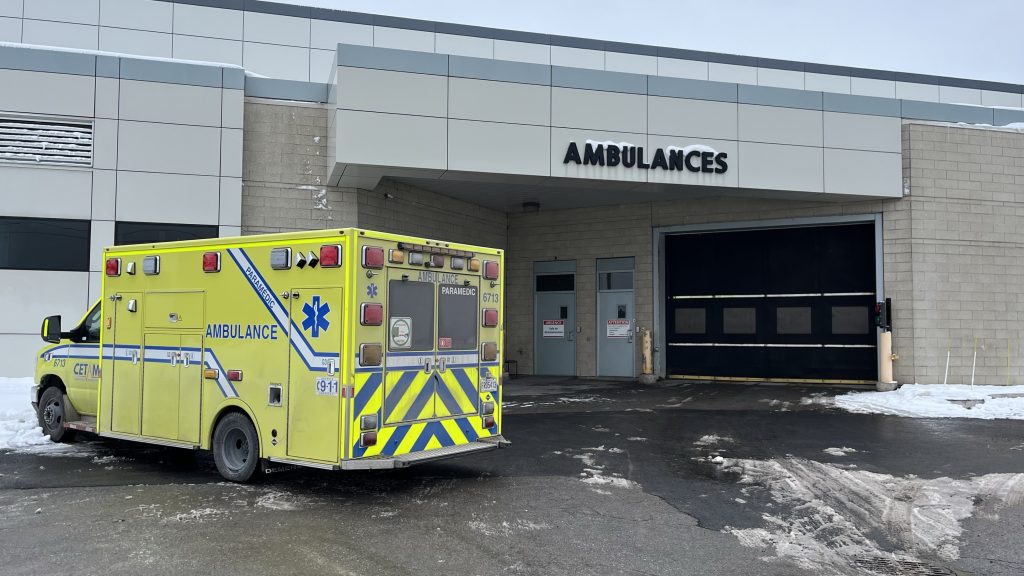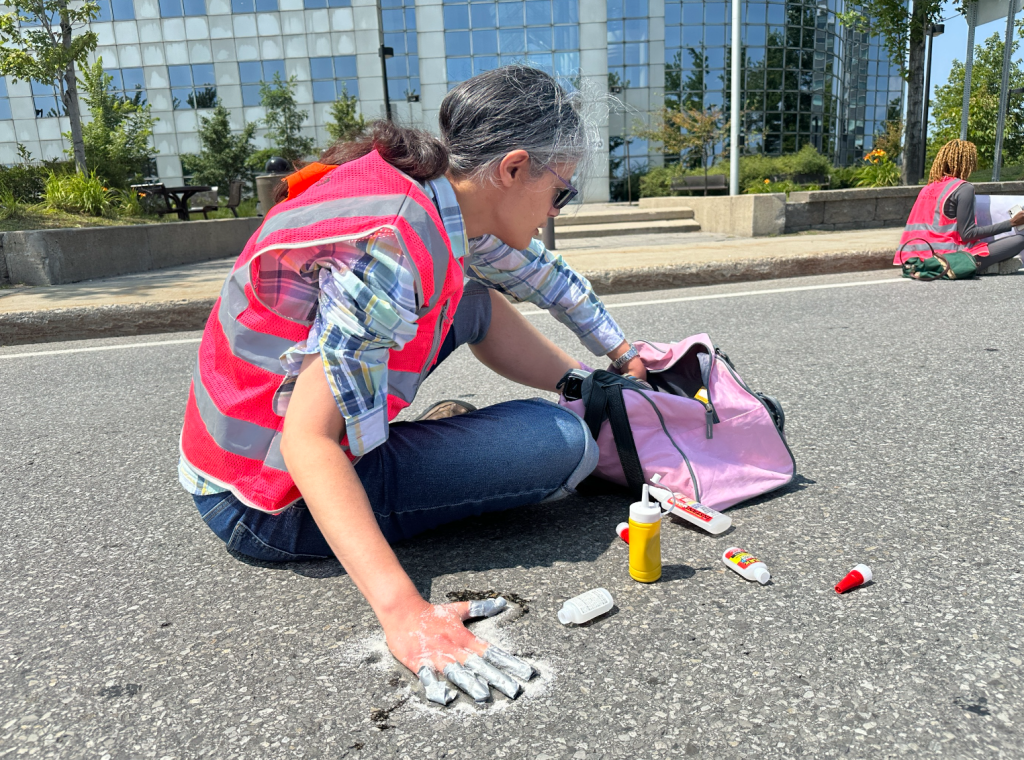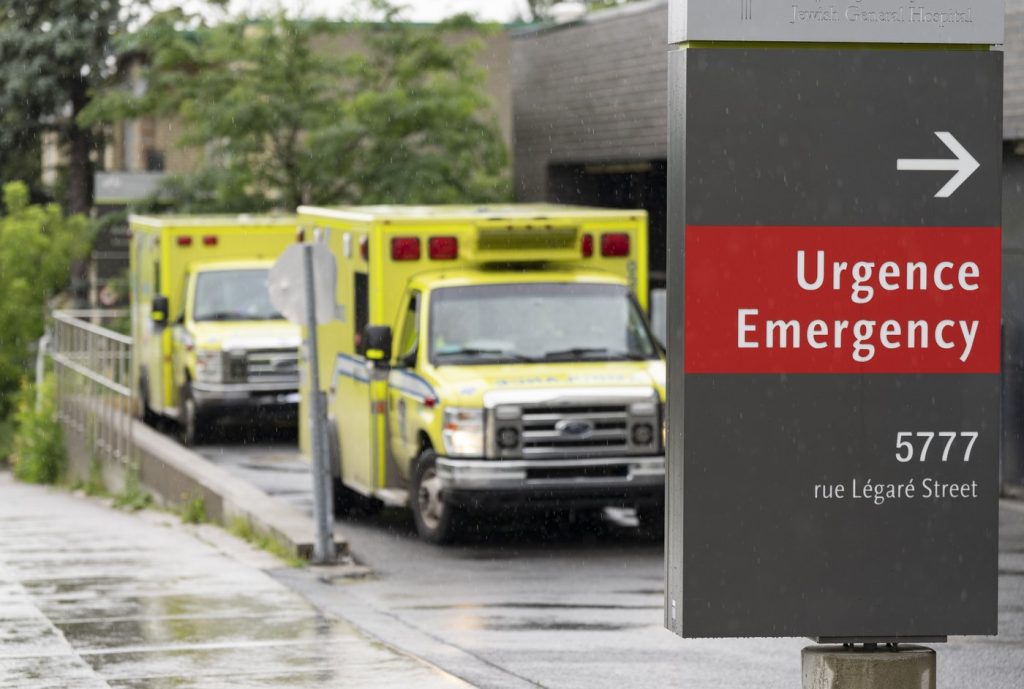Quebec’s plan for ‘mini-hospitals’ has not reached a consensus

Posted February 7, 2024 9:52 am.
The Quebec government hopes to deliver its plan for ‘mini-hospitals’ in 2025.
The Montreal Economic Institute (MEI) thinks they should include emergency rooms that are open 24 hours, but this proposal is not unanimous.
In a study published Tuesday, the MEI indicated that the high demand in emergencies combined with the labour shortage is putting strong pressure on the system.
Economist at MEI and author of the study, Emmanuelle B. Faubert said the presence of an emergency service in ‘mini-hospitals’ will increase supply and lighten the burden on hospitals which is already overloaded.
“Since the start of the year, not a single day has passed without the occupancy rate of Quebec’s emergency rooms being at 100 per cent or more,” Faubert explained. “It is very clear that mini-hospitals would help reduce waiting times by increasing treatment capacity using their emergency rooms.”
However, associate professor in the department of Social and Preventive Medicine at Université Laval, Maude Laberge does not agree.
“We know that we have a stake in the supply of services in Quebec in relation to demand. However, nearly half of emergency room visits are for patients who could be seen in medical clinics and who do not require the technical facilities of an emergency room,” replied Laberge in an email. “If we increase the supply with additional emergencies, we send the message to the population to go to the emergency room.”
According to Laberge, it would be better to invest in front-line services to improve the access to these services, via general practitioners, specialist front-line nurse practitioners and other front-line professionals.
The associate professor believes that by doing this, they will improve the efficiency of the health system and the relevance of care.
“In this sense, I don’t think the government should require mini-hospitals to have emergency rooms 24/7,” she says.
Funding in the hospital system is generally based on fixed budgets.
The MEI underlines in its study that this method of financing determines the intervention capacity of a hospital.
“Thus, each admitted patient represents additional costs that the establishment must pay from a budget that will not increase. The result is a rationing of resources, whether financial, physical or human,” reads the study document.
The MEI is asking the government to fund the mini-hospitals based on activity because it will provide “fixed remuneration based on the various medical procedures performed,” by adding to the budget envelope for the current year.
“Thanks to activity-based financing, the patient is no longer a cost, but a source of income for the hospital, changing the incentive structure for managers,” said Faubert. “This would encourage them in particular to reduce the time that doctors and nurses spend filling out forms, in favor of spending more time with patients.”
Laberge argued that the government began introducing activity-based funding for certain specific services and for volumes beyond a base level almost 20 years ago.
She adds that the Ministry of Health wants to use activity-based funding to replace part of the budget envelope and that this implementation accelerated in April.
In the 2023-2024 budget, it is indicated that the Ministry of Health and Social Services expanded funding on April 1, 2023, which it calls “patient-focused funding.”
According to the budget plan, the share of activities financed based on the performance of care and services offered to patients will now represent more than $2.6 billion per year, or 25 per cent in Quebec hospitals.
The ministry’s objective is to reach 100 per cent from 2027-2028, which will represent more than $10 billion annually.
Laberge believes that the government will use activity funding to finance a large part of the services that would be provided in mini-hospitals.
Last summer, the Ministry of Health did not require operating rooms in mini-hospitals, but the MEI would like this to be implemented to increase the surgery capacity.
The government has confirmed two private mini-hospitals, with one in the l’Est-de-l’Île-de-Montréal and the other in la région de la Capitale-Nationale.
This report by La Presse Canadienne was translated by CityNews.



